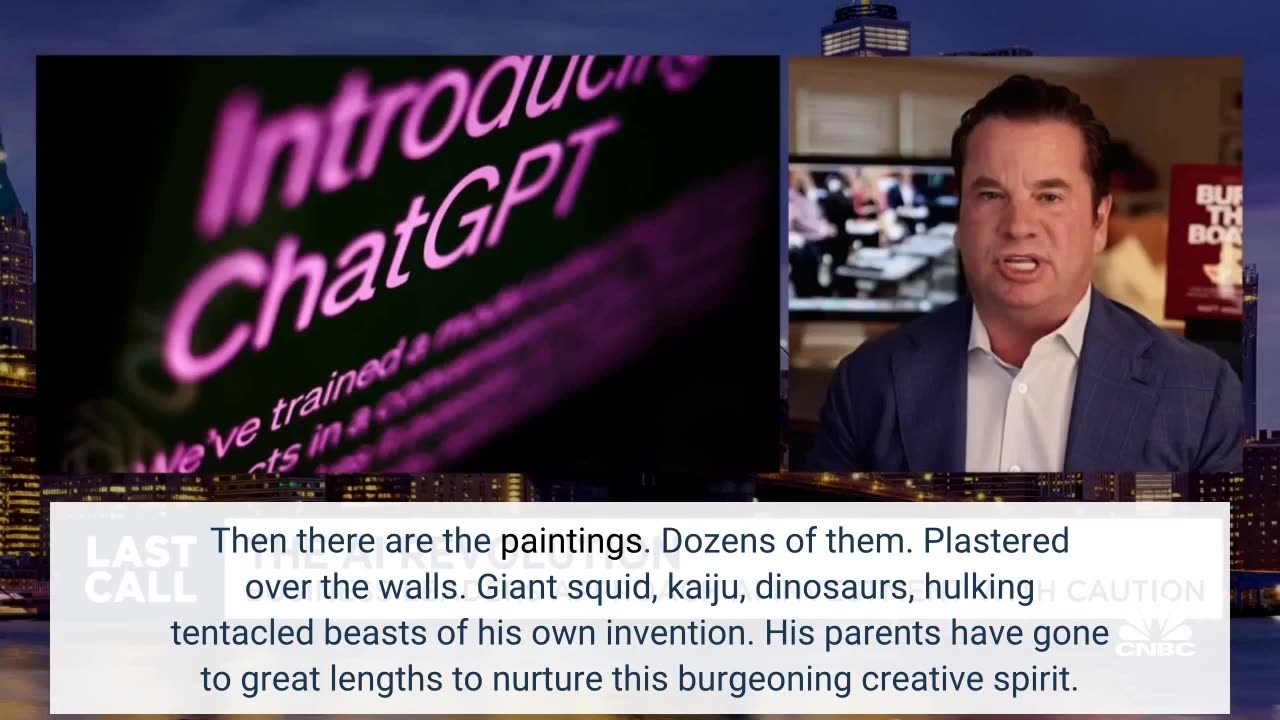Premium Only Content

AI's Teachable Moment: How ChatGPT Is Transforming the Classroom - CNET
🥇 Bonuses, Promotions, and the Best Online Casino Reviews you can trust: https://bit.ly/BigFunCasinoGame
AI's Teachable Moment: How ChatGPT Is Transforming the Classroom - CNET
My 12-year-old nephew's bedroom is a shrine to monsters. Intricate Lego dragons loom ominously atop bookshelves jam-packed with reference works for the handmade creatures he painstakingly crafts out of clay. Then there are the paintings. Dozens of them. Plastered over the walls. Giant squid, kaiju, dinosaurs, hulking tentacled beasts of his own invention. His parents have gone to great lengths to nurture this burgeoning creative spirit. They make stop-motion movies as a family. His dad is teaching him 3D art on the computer. Together they're learning to use Unity, the design tool behind video games like Hollow Knight, Cuphead and Pokemon Go. But lately his dad's been second-guessing those decisions. The reason? AI. Thanks to the rapid development of artificial intelligence tools like Dall-E and ChatGPT, my brother-in-law has been wrestling with low-level anxiety: Is it a good idea to steer his son down this path when AI threatens to devalue the work of creatives? Will there be a job for someone with that skill set in 10 years? He's unsure. But instead of burying his head in the sand, he's doing what any tech-savvy parent would do: He's teaching his son how to use AI. In recent months the family has picked up subscriptions to AI services. Now, in addition to drawing and sculpting and making movies and video games, my nephew is creating the monsters of his dreams with Midjourney, a generative AI tool that uses language prompts to produce images. The whole family is wrestling with the impacts of AI. His mother, my sister-in-law, is a high school science teacher. She's tackling even bigger issues. She's in the process of teaching an entire generation of children to interact with technology that could transform the workplace over the coming years. The questions are many. How do we deal with the immediate issues of cheating and plagiarism? How do educators prepare children for a future working alongside AI? And how do teachers, institutions and governments find room to plan for the future? Reading, writing and AI ChatGPT, an artificial intelligence chatbot developed by OpenAI, has been immediately transformative. And terrifying. Trained on almost incalculable swaths of existing text, ChatGPT takes prompts from users and generates surprisingly sophisticated answers. If, for instance, you ask for a chocolate cake recipe, it provides all the steps. Using ChatGPT can feel like conversing online with a human being who has access to endless repositories of knowledge. But ChatGPT is far from infallible. The AI tool frequently "hallucinates" wrong answers in response to prompts, and – more troubling – it's been known to generate misinformation. Regardless, the raw numbers speak volumes: It took ChatGPT, which launched in late November, five days to hit 1 million users. It took Facebook 10 months to hit the same number. Twitter needed two years. According to the data, the service regularly sees 1 billion monthly visitors. Reactions to this technology have been broad and far-reaching. Some people see ChatGPT in apocalyptic terms, as a harbinger of humanity's inevitable doom. Others see AI as a utopian technology with the potential to dramatically enhance productivity and transform work as we know it. The US Department of Education has taken notice. In May, it issued a report on AI and the future of teaching, noting that, among other things, AI can support educators, enable new forms of interaction and help address variability in student learning. It also acknowledged worries about student surveillance and the potential for human teachers to be replaced. Globally, there's been a huge response. Stanford's 2023 AI Index noted that as of 2021, 11 countries, including Belgium, China and South Korea, had officially endorsed and implemented an AI curriculum. An Education Department blog post, published in April, said that within five years, AI will "change the capabilities of teaching and learning tools." For many teachers, AI is already a source of anxiety. "Most teachers, if they're aware of ChatGPT, are a bit freaked out by it," says Dave Hughes, a high school physics teacher in Sydney, Australia. Hughes, who keeps up with most cutting-edge technology, was among the first of his peers to start experimenting with AI and language learning models. He's b...
-
 15:04
15:04
MetatronGaming
1 day agoOriginal Commodore 64 VS C64 Maxi - Review and Comparison
26.9K9 -
 9:46
9:46
MattMorseTV
15 hours ago $21.20 earnedTrump just SHUT DOWN a $287,000,000 FRAUD RING.
30.4K85 -
 15:48
15:48
GritsGG
17 hours agoWinning a Rare Solos Prison End Game on Warzone!
22.8K3 -
 11:37
11:37
The Pascal Show
17 hours ago $7.52 earnedTHEY WANT TO END HER?! Candace Owens Claims French President & First Lady Put A H*t Out On Her?!
25.1K23 -
 LIVE
LIVE
Lofi Girl
2 years agoSynthwave Radio 🌌 - beats to chill/game to
527 watching -
 24:30
24:30
DeVory Darkins
19 hours agoMarjorie Taylor Greene RESIGNS as Minnesota dealt MAJOR BLOW after fraud scheme exposed
86.4K129 -
 2:19:48
2:19:48
Badlands Media
1 day agoDevolution Power Hour Ep. 409: Panic in the Narrative — Epstein, Israel, and the Manufactured Meltdowns
181K69 -
 1:52:38
1:52:38
Man in America
16 hours agoCommunists VS Zionists & the Collapse of the American Empire w/ Michael Yon
85.5K79 -
 4:09:34
4:09:34
Akademiks
11 hours agoSheck Wes exposes Fake Industry. Future Not supportin his mans? D4VD had help w disposing his ex?
50.2K3 -
 6:43:43
6:43:43
SpartakusLIVE
14 hours agoTeam BUNGULATORS || From HUGE WZ DUBS to TOXIC ARC BETRAYALS
122K3